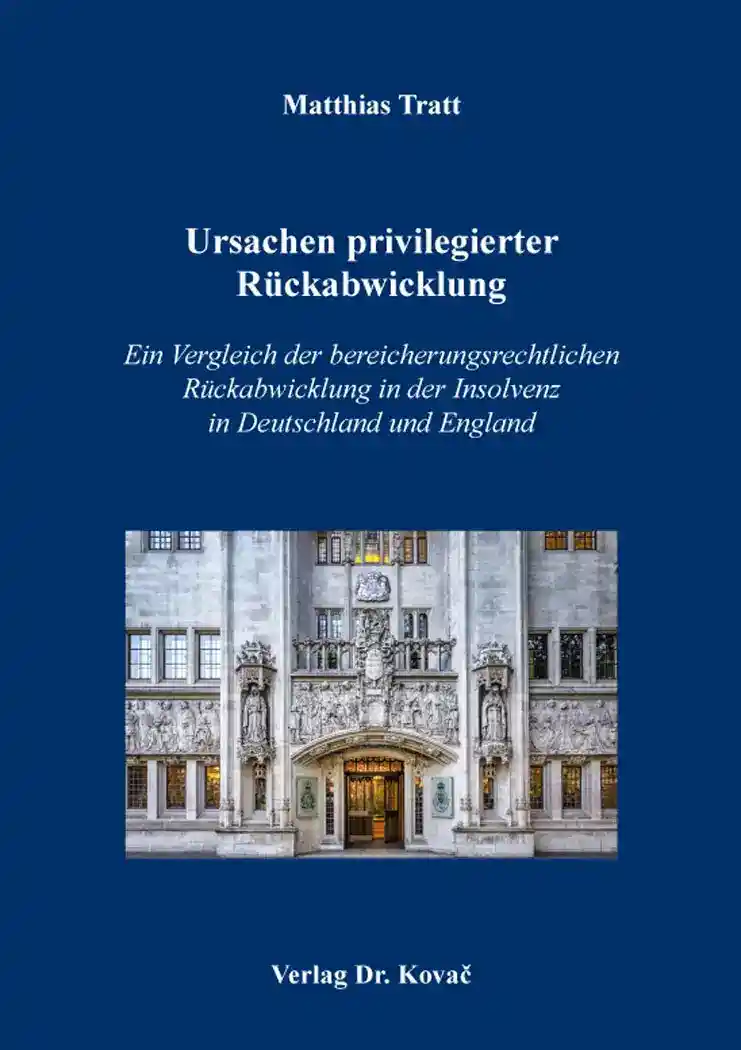Matthias TrattUrsachen privilegierter Rückabwicklung
Ein Vergleich der bereicherungsrechtlichen Rückabwicklung in der Insolvenz in Deutschland und England
Studien zur Rechtswissenschaft, volume 453
Hamburg 2020, 512 pages
ISBN 978-3-339-12034-2 (print) |ISBN 978-3-339-12035-9 (eBook)
About this book deutschenglish
In the English case of Chase Manhattan v Israel Bank, a bank mistakenly executed its client’s instruction twice and therefore transferred $ 2 million too much to the recipient. A few days later, the recipient went bankrupt. The court ruled that this mistake should not benefit the insolvency creditors and that the amount paid, which was still in the recipient’s account, belonged to the paying bank as trust assets. Even though the validity of this 1981 decision is controversial, it has been followed by a few decisions. For a long time, the courts and commentators have discussed whether and when mistaken payments can lead to a resulting or constructive trust and thus to privileges in insolvency. Following the enrichment law revolution since the 1990s, the problem has become one of proprietary restitution - a reversal or prevention of unjust enrichment with the help of remedies in rem.
In German law, on the other hand, enrichment claims are ordinary insolvency claims. Privileges in insolvency are only provided in exceptional cases, for example, if the defect also affects the transaction in rem or in the case of § 48 InsO. For that reason, it is interesting to compare the two legal systems more closely: does English law grant privileges in cases of unsuccessful donations that German law denies? Or does German law arrive at functionally equivalent results by other means? What role does the English trust play, which continental European law does not recognise in this form?
The author investigates these questions. He examines and compares various situations of unjustified enrichment regarding the question whether the claimant is privileged in the insolvency of the defendant, either substantively or procedurally. Following the functional method of comparative law, the author not only considers claims for enrichment but also includes other types of claims for restitution from property, trust and tort law. At the same time, it is a concern of the work to introduce the German reader to the unknown concept of proprietary restitution and thus to contribute to basic comparative law research.
Ihr Werk im Verlag Dr. Kovač

Möchten Sie Ihre wissenschaftliche Arbeit publizieren? Erfahren Sie mehr über unsere günstigen Konditionen und unseren Service für Autorinnen und Autoren.
